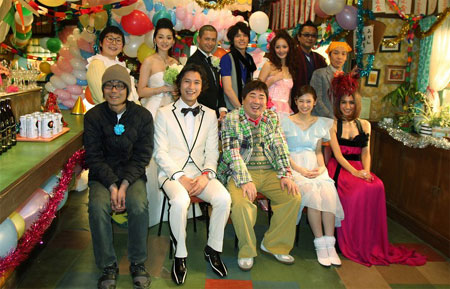
On the surface, A Single Man is simply a glossy depiction of a day in the life, and death wish, of a gay university professor in California in 1962. He's a Brit, teaches Eng Lit, lost his longtime lover and is preparing to commit suicide. It's easy to guess why designer Tom Ford (Hardwick, Gucci, YSL, own label) chose the story for his directorial and movie production debut.
He re-worked a screenplay written by a Canadian lawyer, David Scearce, who had adapted the same-name Christopher Isherwood novel, with the permission of the late author's longtime male lover. According to Wikipedia, Ford is also in a long-term relationship. The Texas-born self-made fashion industry millionaire is an architecture graduate, as is the movie professor's dead lover.
A mainstream production of the movie would probably have changed the professor's nationality. It wouldn't have cast two little-known English actors as the professor's American love interests, and it wouldn't have been happy keeping the professor's alcoholic best friend as another Brit emigre. However, mainstream Hollywood would never have financed this movie. Ford could afford to stay faithful to the book and his cast justified his faith in them.
Colin Firth has been a stalwart, and almost deadpan, actor whose one moment of movie magic was a gift from the director who asked him to do a wet-shirt scene for a BBC TV production of Pride and Prejudice. That led Helen Fielding to make him the dream lover for her Bridget Jones comedy romances. Their movie versions rightly chose Firth to play himself, which he did charmingly despite being overshadowed by Hugh Grant's rival character.
As the Brit professor, he has a role that perfectly suits his subtly mannered acting style. His BAFTA Best Actor award recognised his achievement, even if Hollywood didn't want to deprive Jeff Bridges of his Oscar and Golden Globe. Julianne Moore shines too, crafting a convincing accent as a California-set Londoner and portraying a beautifully drunken poignancy that should prompt Steven Spielberg to sign her up asap for his long-mooted bio of Dusty Springfield.
Matthew Goode, as the professor's dead lover seen in flashbacks, conveys gay-toned straightness impeccably and has other, mainstream, starring roles to remind Hollywood that he is a straight talent. Nicholas Hoult is also known by casting directors as a cross-Atlantic import; his long career as a child actor included the co-starring role in About a Boy (well supporting another Brit, Hugh Grant). The chubby boy grew into a handsome blue-eyes-flashing provocateur.
Going his own well-funded independent way, Ford chose to employ a top Spanish male model who'd walked his fashion catwalks as a hustler for his movie. Ideally, as his cameo scene is one of the more self-consciously artfully-framed and dramatically-lit passages in the movie. As in many other scenes, Ford focuses lovingly, lustfully, almost leeringly, on facial features. Eye and mouth movements reveal a person's thoughts and hopes, and they are manna from a heavenly director for restrained actors such as Firth.
Anyone who wants to sense the moods of the 60s will feel them throughout the movie. We are also reminded, too frequently for modern mainstream movie-makers' consciences, how much of a role smoking played in that generation's lifestyles. And the importance of social niceties then.
The movie is not perfect. There are plotting incongruities, the actors seem too artificially posed at times, the attempted-suicide scenes are strangely comic interludes that demean the central figure, and the sensually adventurous character of the professor's supposedly confused student seems unreal, almost as if he were a wish-fulfillment fantasy. The ending has been called ironical, but it's really a cop-out.
I should now read Isherwood's book, to discover what plot details were changed, and I will re-watch the movie at least once. And then again, just to spend more time savouring the richness of the soundtrack. In the early stages, I wondered if its insistent tones were going to overwhelm the visual messages. Instead, more often, they embellished the images.













